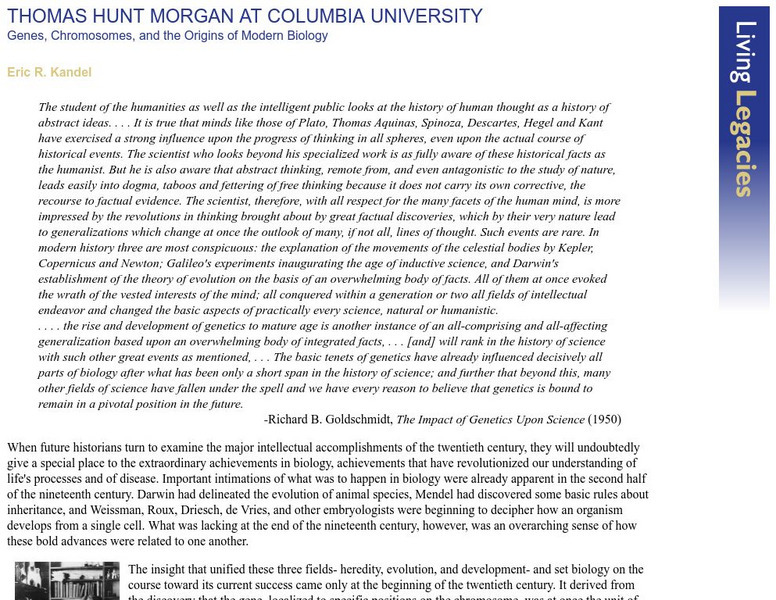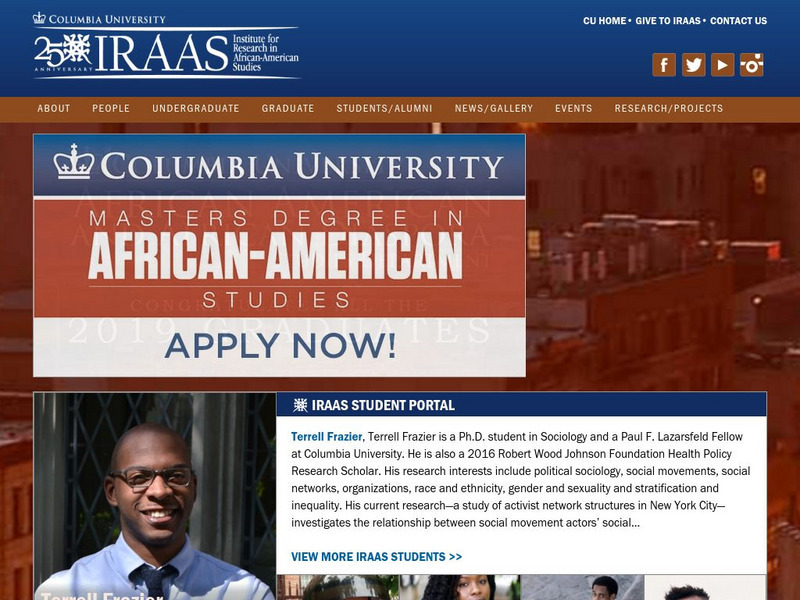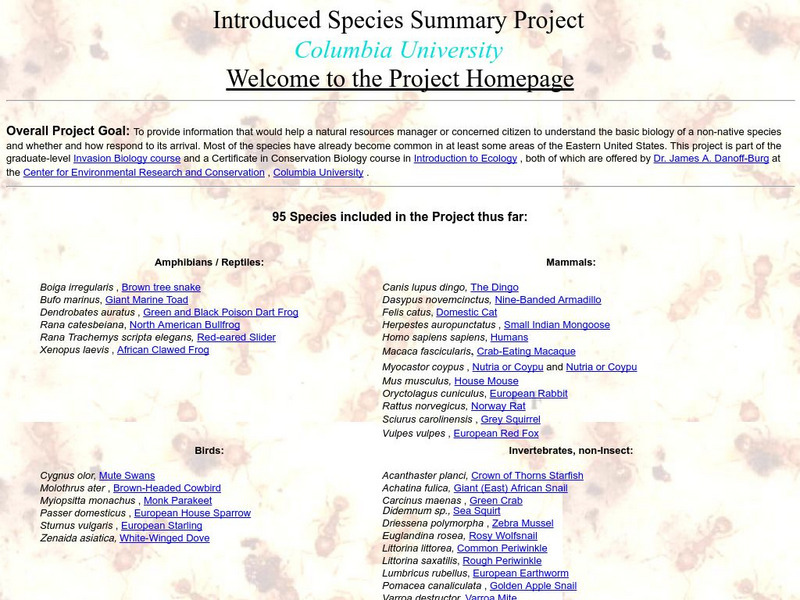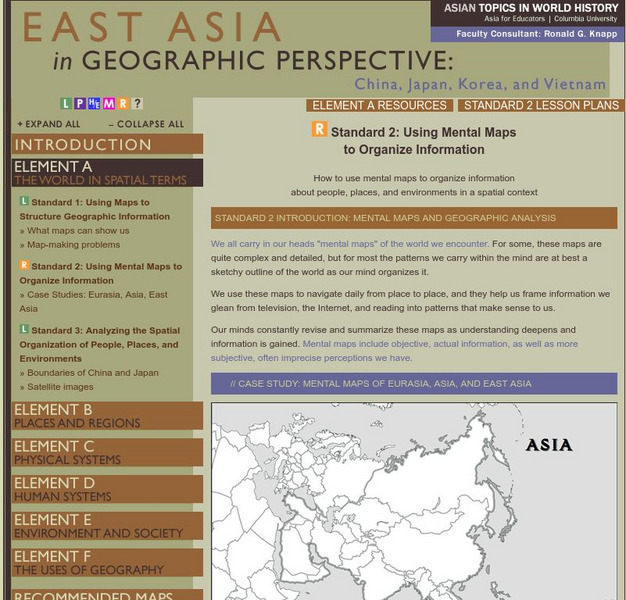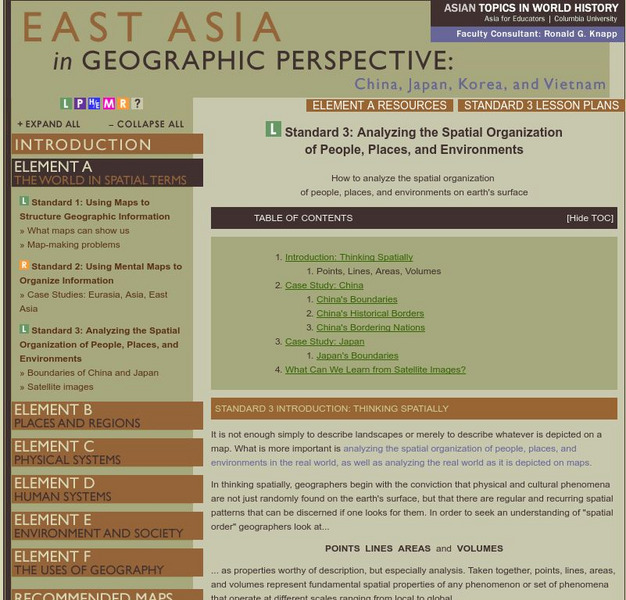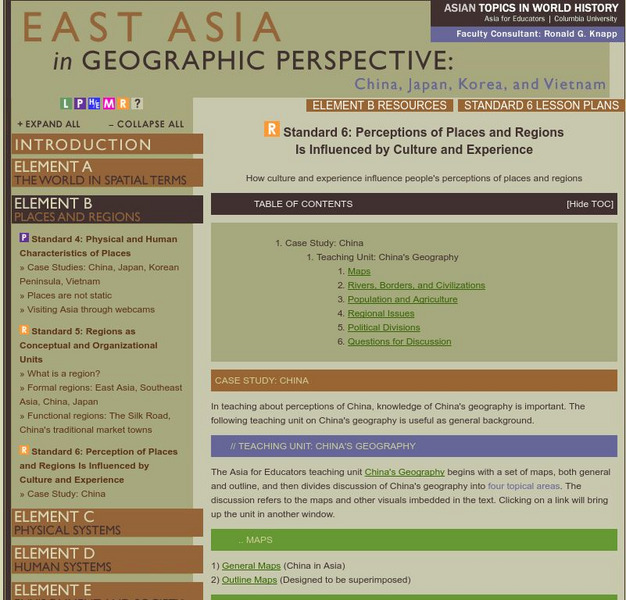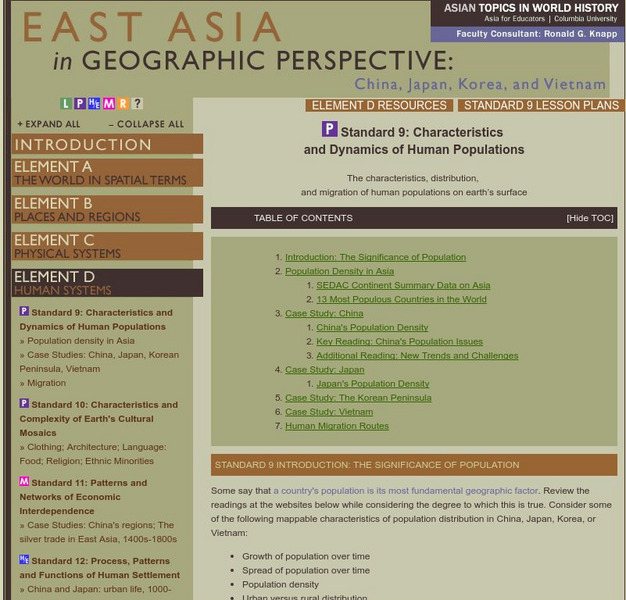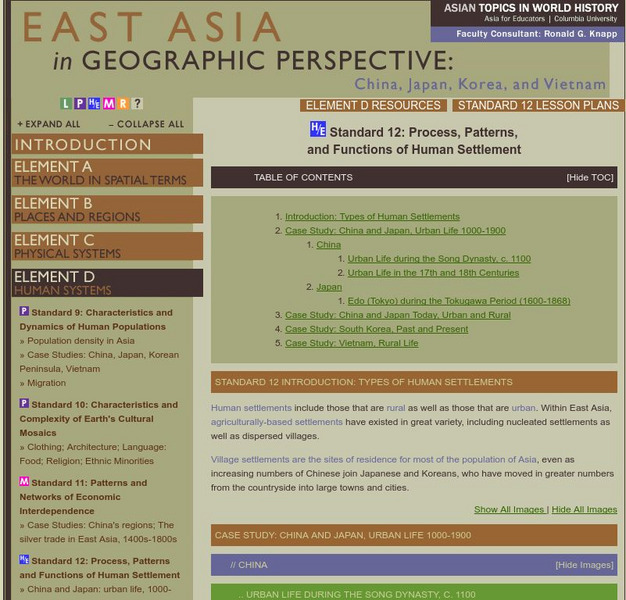Columbia University
The Climate System: Atmospheric Forces, Balances, and Weather Systems
The large scale horizontal flow of air in the atmosphere is driven by the imbalance of net radiation over the globe. This resource introduces us to the physical laws governing the horizontal motion of air. It also describes types of...
Columbia University
The World Trade Center Attack: The Official Documents
An ambitious compilation of government documents surrounding the attack on the World Trade Center and September 11, 2001, in general.
Columbia University
Romanesque Churches of the Bourbonnais
Come see first hand the breathtaking European architecture of Romanesque churches throughout central France. Amazing interactive map and spectacular pictures make you feel as though you are visiting in person.
Columbia University
Ling Long Women's Magazine, Shanghai 1931 to 1937
Chinese social and cultural history will benefit greatly from the preservation of a nearly complete run (228 of 298 issues) of Ling Lung, a weekly Chinese women's magazine published in Shanghai from 1931 to 1937.
Columbia University
Columbia University: Falling Water: Interactive Tours
Visit one of Frank Lloyd Wright's most acclaimed works, "Falling Waters." Select an area to view on the floor plan and then see it in 360 degrees.
Columbia University
Columbia University: Thomas Hunt Morgan
The site promotes the importance of Morgan and his experiments in genetics with fruit flies on the field of biology.
Columbia University
Columbia University: Expected Value Pdf
A PDF explaining and giving examples to show how the expected value of a random variable indicates its weighted average.
Columbia University
Columbia University: Harlem Hospital Wpa Murals
Painted during the Great Depression and funded under the Works Progress Administration/Federal Art Project these murals carry with them a history worth noting.
Columbia University
Columbia University: Introduced Species Summary Project
The purpose of this website is to provide information that would help a natural resources manager or concerned citizen to understand the basic biology of a non-native species and whether and how to respond to its arrival. Most of the...
Columbia University
Columbia University: Evidence for Internal Earth Structure and Composition
This resource describes how seismic waves have helped us to understand the composition of the Earth's interior. It discusses seismic discontinuities, including the Mohorovicic Discontinuity or Moho, and what we have learned about the...
Columbia University
The Earth Institute at Columbia University
Bringing people together to discuss Earth's environmental problems, The Earth Institute addresses climate change, environmental degradation, poverty, disease, and sustainable use of resources.
Columbia University
Columbia University: East Asia in Geographic Perspective: Standard 1
How to use maps and other geographic representations, tools, and technologies to acquire, process, and report information from a spatial perspective
Columbia University
Columbia University: East Asia in Geographical Perspective
How to use mental maps to organize information about people, places, and environments in a spatial context
Columbia University
Columbia University: East Asia for Educators
How to analyze the spatial organization of people, places, and environments on the earth's surface.
Columbia University
Columbia University: East Asia in Geographic Perspective: Standard 4
Physical and Human Characteristics of Places
Columbia University
Columbia University: East Asia in Geographic Perspective
People create regions to interpret earth's complexity
Columbia University
Columbia University: East Asia in Geographic Perspective
How culture and experience influence people's perceptions of places and regions
Columbia University
Columbia University: East Asia in Geographic Perspective
Physical Processes That Shape the Patterns of Earth's Surface
Columbia University
Columbia University: Characteristics and Spatial Distribution of Ecosystems
An understanding of the geography of East Asia - its land, water, people, agriculture, and why we call it "East Asia" - is crucial to understanding the history, civilization, and contemporary events in East Asia and the world. In this...
Columbia University
Columbia University: East Asia in Geographic Perspective: Standard 9
The characteristics, distribution, and migration of human populations on earth's surface
Columbia University
Columbia University: East Asia in Geographic Perspective
The characteristics, distribution, and complexity of earth's cultural mosaics
Columbia University
Columbia University: East Asia Geographic Perspective: Standard 11
The patterns and networks of economic interdependence on earth's surface
Columbia University
Columbia University: East Asia in Geographic Perspective
Process, Patterns, and Functions of Human Settlement
Columbia University
Columbia University: East Asia in Geographic Perspective
How forces of cooperation and conflict among people influence the division and control of earth's surface.






